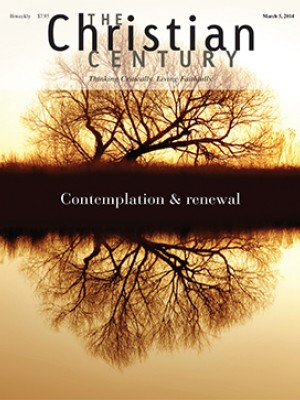Being Christ's body

Heidi Neumark’s article on the state of the church ("Companion to strangers") resonates deeply in my heart. I know what her seminary intern was experiencing as she “limped,” inexperienced and with little confidence, toward the ICU and a young couple who waited there with their dying infant. I also know that years of experience don’t ease the journey. Pastors and chaplains feel terribly inadequate, wondering whether helpful words will come, and at the same time feel incredibly grateful that the vocation allows us into such intimate situations.
In Beyond Belief, Elaine Pagels tells of learning that her two-and-a-half-year-old son had a life-threatening medical condition. Although she hadn’t attended church for a long time, she stepped inside a church vestibule to warm up and was startled by sounds of worship—the soaring harmonies of the choir, the clergyperson’s clear resonant prayer. Pagels said to herself, “Here is a family that knows how to face death.”
Read our latest issue or browse back issues.
As I think about the viability of the church I think of this statement about the church as family. Pastors and laypeople know this—that the church of Jesus Christ is big and deep and resilient, bigger and more resilient than anything I’m thinking or worrying about or doing.
When I’m asked about the future of the church I think about Glen. Glen had AIDS. The church where his family had been actively involved for years made no secret of its disapproval of Glen’s sexual orientation and practice. He somehow found our church, joined it and became a devoted and active member. His parents transferred their membership as well. As his illness progressed, Glen was admitted to a hospice facility. I visited him a few days before he died.
Although he was very sick, we had a good conversation about life, the church, Easter and death. I asked Glen what the hardest thing was for him. He answered that the most difficult time was in the evening, when visitors had gone, the halls were quiet and the lights dimmed, and he was alone with the awareness that he was dying. But then his face brightened. Every night, he said, he put his headphones on and listened to a recording of our church’s Sunday worship service. “It settles me down,” he said. “Sometimes I fall asleep while the choir is singing. I doze off a lot of times during your sermon—I know I’m not the only one,” he added with a grin. “That’s how I go to sleep every night, here in my hospice bed but also in my church.” Glen reminds me that the church does what no one else does—and that people still turn to the church in those singular moments of birth, crisis, and death.
Somewhat like the Earl of Grantham in Downton Abbey, I have difficulty accepting the fact that something I love and to which I have given my life is changing right in front of my eyes. When I was ordained, the mainline church was a growth industry with shiny new corporate headquarters on Riverside Drive in Manhattan. New churches were being planted and were thriving in burgeoning suburbia. There was money to fund creative mission. Church leaders were minor celebrities. Presbyterian stated clerk Eugene Carson Blake was on the cover of Time magazine for collaborating with Episcopal bishop James Pike on a bold ecumenical initiative. That era is gone now.
I have a proposal: let’s call a moratorium on counting members. Let’s consider that we are called to witness to God’s love in Jesus Christ and to do everything we can to be Christ’s body in the world, to do what we believe he would be doing and is doing through us.






